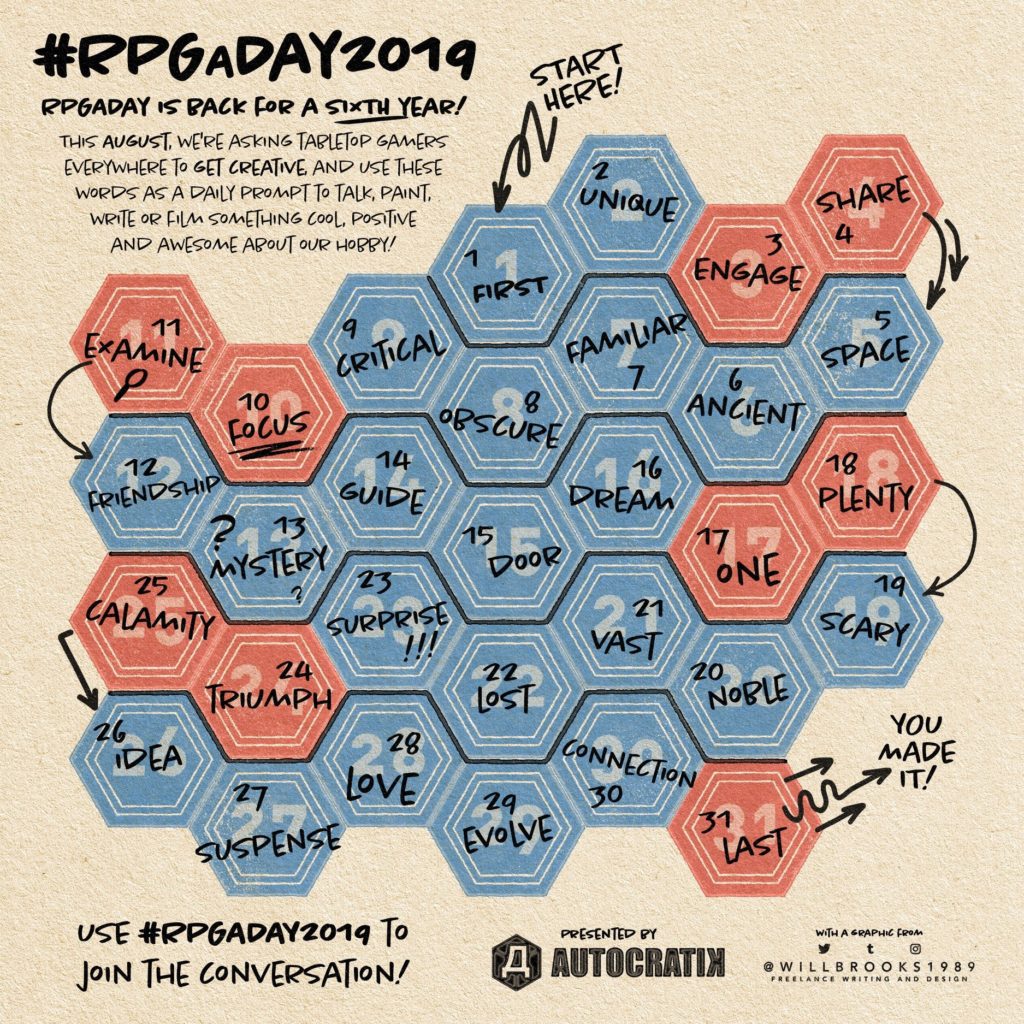
The word for RPGaDAY2019 Day 2 is: Unique.
Yeah, this one can go in so many directions. What is unique in gaming? There are a lot of ideas and systems and concepts and most of them get re-used and copied and altered and mangled. My friend Ross says good writers borrow, great writers steal. So, when there are so many variations on rules and genres and game worlds where things are borrowed and adapted from game to game, world to world, what is unique?
 Thinking on it, I one thing keeps popping up in my head. It's a little book called Primetime Adventures. The version I own is the one on the left. The idea behind Primetime Adventures is to tell a story- any story, in any genre- as if it were a TV series. To this end, there's a very neat mechanic that I have not seen in any other game that I am rather fond of, and have adapted to other RPGs. The idea is that you lay out your game sessions as a season of a show, with a number of episodes determined by the game master. Then each character assigns numbers to each episode that reflect the prominence of their character to that episode. This has two effects- one, the game master focuses on the characters when their high number episodes show up, and two, the character has more cards to play for task resolution in episodes with a higher number. So, to use a Star Trek: TNG analogy, this is how you get the Data episodes and the Worf episodes- those would be the episodes where the players for Data and Worf had assigned their single maximum number for that season. In all other episodes they would have lower numbers, and smaller hands of cards for task resolution.
Thinking on it, I one thing keeps popping up in my head. It's a little book called Primetime Adventures. The version I own is the one on the left. The idea behind Primetime Adventures is to tell a story- any story, in any genre- as if it were a TV series. To this end, there's a very neat mechanic that I have not seen in any other game that I am rather fond of, and have adapted to other RPGs. The idea is that you lay out your game sessions as a season of a show, with a number of episodes determined by the game master. Then each character assigns numbers to each episode that reflect the prominence of their character to that episode. This has two effects- one, the game master focuses on the characters when their high number episodes show up, and two, the character has more cards to play for task resolution in episodes with a higher number. So, to use a Star Trek: TNG analogy, this is how you get the Data episodes and the Worf episodes- those would be the episodes where the players for Data and Worf had assigned their single maximum number for that season. In all other episodes they would have lower numbers, and smaller hands of cards for task resolution.I found this to be a really neat way to make sure everyone has the spotlight at some point in a game campaign. It might exist in other games, but the only place I've seen it is in Primetime Adventures. So, there's my entry for Unique.
My gaming group did a version of this for an Eberron D&D campaign, even including cold opens where the game starts in a flashback scene or otherwise informative side story where we may be playing NPCs. After the short opening scene we'd switch back to our standard characters in the present. It was pretty neat.
ReplyDelete